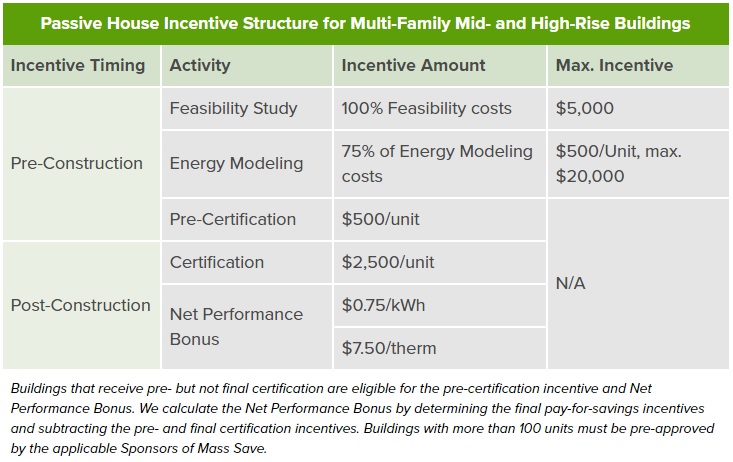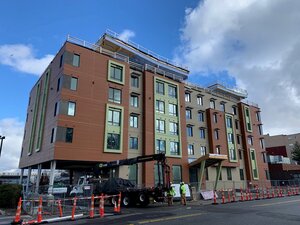Massachusetts Takes the Lead on Passive House
While Massachusetts has been a longtime leader in energy efficiency programing, the state is finally taking the lead on the development of low-carbon buildings by focusing on the Passive House standard.
This includes incentives from the Mass Save program, a pilot grant program for affordable housing through the MassCEC, and an update to the state’s affordable housing funding allocation system to incentivize Passive House projects.
This is on top of various initiatives at the town and city level throughout the region and ongoing efforts to update the state’s building stretch code for Passive House and Net-Zero buildings.
Mass Save Passive House Program
The AECCC has recently ranked Eversource MA and National Grid MA is the top-two spots on its 2020 national utility scorecard due in part to their support of Passive House through the Mass Save program.
Last year, Mass Save began incentivizing multifamily projects meet the Passive House standard by offering $3000 per unit for construction costs as well as, ast least partially, covering Passive House feasibility studies and energy modeling services for eligible projects. Earlier this year the program was expanded to include all projects of 5 units or more.
PHMass urges all developers of qualifying projects to, at the very least, conduct a Passive House feasibility study and explore building to the Passive House standard would mean for your project. Through this program, 100% of the cost of these studies are covered, up to $5000 total.
MassCEC Passive House Design Challenge
Last year, the Massachusetts Clean Energy Center instituted a design challenge for affordable housing developers to build new projects to the Passive House standard and demonstrate that Passive House can be done with a
low cost premium. So far, eight projects have been awarded grants across the state, totalling more than $1.7 million in funding.
This includes Finch Cambridge, a 98-unit affordable project near the Alewife MBTA station and Mattapan Station, a 135 unit affordable project near the last stop on the Mattapan Trolley/Red LIne Extension. You can read more about these projects and the MassCEC program in this interview from Passive House Accelerator.
Low Income Housing Tax Credit Program
The Department of Housing and Community Development’s newly released 2020-2021 Qualified Allocation Plan for it’s Low Income Housing Tax Credit Program includes incentive for Passive House projects. This will award proposed projects designed to meet Passive House certification 5 extra points in the exemplary performance category, increase their chance of funding.
Similar programs in others states, most notably in Pennsylvania, resulted in substantial increases in Passive House projects and did so with little-to-no increase in costs. The full plan can be found on the state’s site here.
Training for Designers and Building Trades
While these programs are providing boost to the number of Passive House projects in the state, they are also demonstrating the need for more professionals to be trained in designing and construction these new types of buildings. In addition to project incentives, Mass Save is funding training courses, including providing a 50% reimbursement for Passive House certification courses. In conjunction with their pilot program, the MassCEC produced two webinars and a training tool for project teams. Recorded trainings can be watched in the PHMass Video Library here.

